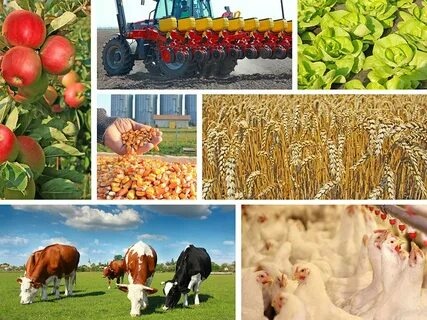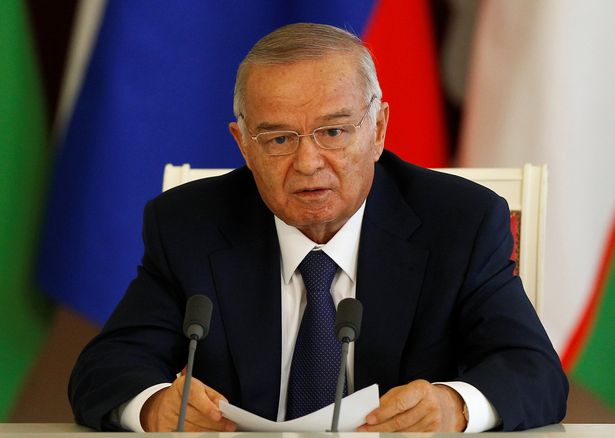H.E. Islam Karimov the President of the Republic of Uzbekistan delivered a keynote speech at the extended session of the Cabinet of Ministers on January 16, 2016. He highlighted Uzbekistan’s socio-economic achievements during 2015 and the future targets for 2016. He also outlined his government’s important priorities of economic program for the year 2016.
He summarized the far-reaching results of different series of structural reforms initiated during 2015 which successfully protected the interests of small business and private enterprises. The role of private ownership has been institutionalized as foremost priority due to which government’s role, utility and share has also been diminished. I personally think that due to these short and long terms socio-economic reforms and introduction of so many regulatory organizations, Uzbekistan has become the role model for the region and for the world to follow. Its economy is now knowledge based. It is now smarter.
Moreover, appropriate conditions for privatization of government assets to foreign investors proved great successful during 2015 which also created some of 22,000 new jobs. The government of Uzbekistan rightly opted for “Sell-Off” options for the sick state-owned units and unused properties to private investors and utilized the financial resources in different productive channels during 2015. It also offered for sale its different enterprises through stock exchange i.e. “Sale of Share”. By freeing more than 120 hectares of land and its allocation to entrepreneurs it further enhanced production capabilities and profitability.
It is amazing that despite weak regional economic prospects and ongoing economic and financial crises, the macro-economy of Uzbekistan remained strong, stable and sustainable during 2015. It achieved one of the highest GDPs not in the region but also in the world during 2015 which was achieved with the help of meaningful structural reforms and interactive regulatory bodies.
Introduction of unlawful interference of law enforcement agencies into supervisory and administrative structures of entrepreneurial activities had been marginalized which paid diversified dividends in terms of greater business activities and registration of new businesses in the country during 2015. Lawful rights of private property ownership were guaranteed by reinforcing the role of judicial authorities which ultimately further enhanced their activities. Moreover, to establish social nets of micro-firms, small businesses and owner-operated farms in the country, mechanism and role of audit were trimmed which resulted in its robust growth. The Government’s interactive reforms in terms of “Single Portal for Interacting Government Services” were a great success.
Socio-economic structural reforms have transmitted its trickle-down effects in all the sectors and sub-sectors of its national economy in terms of qualitative life, friendly business environment as endorsed by different international organizations i.e. the World Bank and World Economic Forum. Uzbekistan is now among the five countries with the fastest growing economies in the world based on development outcomes for 2014-2015 and forecasts for 2016-2017. Its “Doing Business Rating” has been enhanced in terms of “starting business”, enforcing contracts and the last but not the least, “getting credit by small business”. Due to all this the share of Small Business in GDP has increased from 31 percent to 56.7 during 2000 to 2015. Its share in industrial production is 33 percent and share in agricultural output is 98 percent.
Corporate governance is the mantra of every country around the world and the Republic of Uzbekistan is no exemption. It introduced a perfect “Corporate Governance System” which established a genuine market oriented outlook. Uzbekistan attracted more than US$ 15.8 billion in different sectors of the national economy during 2015.
The combination of all these above mentioned structural reforms and regulatory bodies’ resulted in the high GDPs ratios. The GDP 2015 enhanced by 8 percent, production of industrial goods increased by 8 percent while agricultural products registered a 7 percent growth, construction and assembling works progressed by almost 18 percent. The national budget was executed with surplus at 0.1 percent of the GDP. The surplus in foreign trade turnover has been secured. The inflation rate has not exceeded forecast parameters.
Its financial and banking sector remained resilient, strong and stable. There was increase in the capitalization and expansion of banks during 2015. Its aggregate capital increased by 23.3 percent as compared to 2014 and reached to 7.8 trillion Soums. Moreover, its capital adequacy ratio is now 24 percent.
Food security is an emerging threat to all the humanity. Its structural reforms and easy supply of credit facilities has revolutionized its agricultural sector. Uzbekistan was one of 14 countries that received the award, among the member-states of the “Food and Agriculture Organization of the United Nations (FAO) for achieving the “Millennium Development Goals in the food security.
Due to diversified but integrated structural reform the agriculture sector of Uzbekistan has been revolutionized. Through hard work and skills of farmers, despite the difficult weather conditions Uzbekistan managed to grow and harvest a rich crop of agricultural products and produced more than 7.5 million tons of grain and more than 3.35 million tons of cotton. The average yield of wheat reached 55 quintals per hectare and in some areas even reached 60-77 quintals per hectare, which is a great achievement of Uzbek farmers.

The sectors of agriculture such as horticulture, gardening, viticulture and cattle breeding showed rapid development. Last year, 12.59 million tons of vegetables, including potatoes, 1.85 million tonnes of melons, 1.56 million tons of grapes, 2.73 million tons of fruits had been harvested.
New job creation is a serious socio-economic issue which has already created problems for many capitals in the world during 2015. But in case of Uzbekistan, it provided more than 980,000 new jobs and most of them i.e. 60 percent were in rural areas.
The government and people of Uzbekistan are now enjoying the high rates of economic growth achieved during last so many years, especially during the last 5 years. It enhanced wages of employees in the public sector, pensions and stipends were increased by 21.9 percent. Moreover, the services sphere has also demonstrated dynamic growth. The volume of paid services increased by 10.8 percent, retail turnover- by over 15 percent. The share of services sector in the gross domestic product has reached 54.5 percent compared to 49 percent in 2010.
Social development has been one of the foremost priorities of its national government since its inception. Due to which its “happiness Index” has further strengthened and increased. According to UN its happiness index was at 44th place in 2015 as compared to the 60th place in 2013. Its annual allocation on “education system” remained 10-12 percent of GDP which is almost twice the level recommended by UNESCO to ensure a country’s sustainable development. The Uzbek government heavily invested in “health sector” which has now further modernized in all parts of the country.
The State Program for “The Year of attention and care the senior generation” has been executed, for which over 2 trillion 246 billion and 225 million US dollars have been directed from various sources.
President Islam Karimov also pinpointed different unattended socio-economic issues and policies flaws. He rightly labelled continuous technological production, optimal utility of internal resources and sources, further diversification of economy, energy mix and in depth structural reform during 2016. GDP would be 7.8 percent during 2016.
He set industrial growth target up to 40 percent of GDP as compared to 33.5 percent in 2015. Agriculture share in the GDP would be further reduced up to 8-10 as compared to 16.6 percent in 2015. He predicted 14 percent growth in the retail trade turnover and 17.4 percent in service sector. Inflation would be 5.5-5.6 percent. Personal income would increase by 9.5 percent and 15 percent increase in average wages, pensions, stipends and benefits. He also projected “doubling of national GDP” during 2016-2030.
The most important tasks were identified to radically increase competitiveness of the economy, strengthen support of exporting enterprises, all-round stimulation of small businesses and farmers to export. Modern information and communication technologies in the spheres of the economy and radical acceleration of creation of the “Electronic government” system would also be institutionalized during 2016.
Moreover, the government, ministries, other agencies, economic associations and hokimiyats of all levels got tasked with the adoption of necessary measures dedicated to continuing implementation of democratic reform and modernization of the country, deep structural transformations, ensuring macroeconomic balance, anticipatory development and protection of private property, entrepreneurship and small business, accelerated development of engineering-communication and road infrastructure, social sphere, further increasing the welfare of the population.
H.E. Islam Karimov provided a “blue print” of his government achievements and targets during 2015-2016. It highlighted its socio-economic prosperity along with bright future prospects in the next five years. He formulated different strategies to double GDP during 2016-2030. He determined to achieve more and more qualitative life in terms of better education, health, housing and clean drinking water facilities to his people at large. He rightly showcased the multiplier effects of “Uzbek Model” of growth which stool tool during the time of economic and financial crises in the region and world. Its economic model proved counterproductive during weak regional as well as world economic conditions. He rightly termed “knowledge based economy”, further diversification of economy, production channels and energy mix during 2016 and beyond for greater socio-economic prosperity, national dignity and regional connectivity.
Conclusion
The Republic of Uzbekistan has succeeded in achieving desired levels of diversification and increased competitiveness of the national economy as a result of modernization and large-scale introduction of modern technologies and equipment. Moreover, policy of self-reliance and localization of production and expansion of inter-sector industrial cooperation have further strengthened its socio-economic prosperity and national dignity.
Optimal utilization of domestic resources is one of the key national policies of Uzbekistan which has further strengthened the national industrial potential. It upholds the maximum utilization of a nation’s domestic resources and potentialities for the balanced development of the real sector of its economy and the introduction of import-substituting and export-oriented goods reduce its dependence on external factors, including, in particular, global crises and an unfavorable situation in foreign markets. The National Localization Program proved a blessing which has increased its domestic production.




